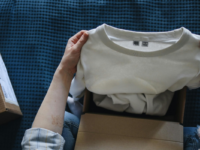Ahead of next month’s elections in Western Australia, the Liberal Party promises to provide payroll tax rebate to Western Australia’s small businesses, helping them save up to $32,000.
“It’s not just families that are doing it tough, small businesses across WA are also struggling with rising costs under WA Labor’s cost of living crisis,” said Western Australia Liberal Party leader Libby Mettam. “That is why we will offer a payroll tax rebate for one year, of up to $32,000 to businesses with a wage bill at or under $1.5m, and a partial rebate for businesses under $3m in wages.”
It is believed that more than 3,000 employers will benefit from this tax relief, paying no payroll tax for 2024-25, while more than 4,500 businesses would have their payroll tax liability reduced. The Economic Regulation Authority (ERA) will also be tapped to review the state’s payroll tax arrangements, stamp duty, including on insurance, and retail trading hours.
Currently, all businesses with annual taxable wages over $1m are required to pay payroll tax. In relation to this, the Business Council of Australia has ranked WA as the second worst state in the country for tax and regulatory settings, behind Victoria.”
“The rebate will provide immediate and targeted relief to WA small businesses, while the ERA will help establish the right tax and regulatory arrangements to set WA small businesses up for the future,” said Shadow Treasurer Steve Martin. “This is about helping more than 7,500 small businesses now, while we fix eight years of inaction from WA Labor which has stopped small businesses from achieving their potential.”
Scott Edwardes, WA Liberal Candidate for Kingsley, welcomed the pronouncement, saying “Small businesses across Kingsley regularly tell me payroll tax and the regulatory regime are among their biggest issues, and one of the barriers to growth. Providing a rebate will help small businesses get through a tough time with their costs rising, and consumers tightening their belts.”















